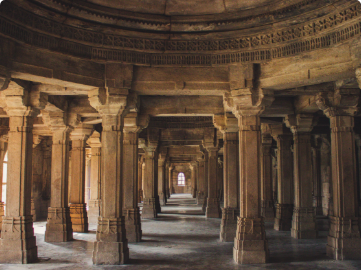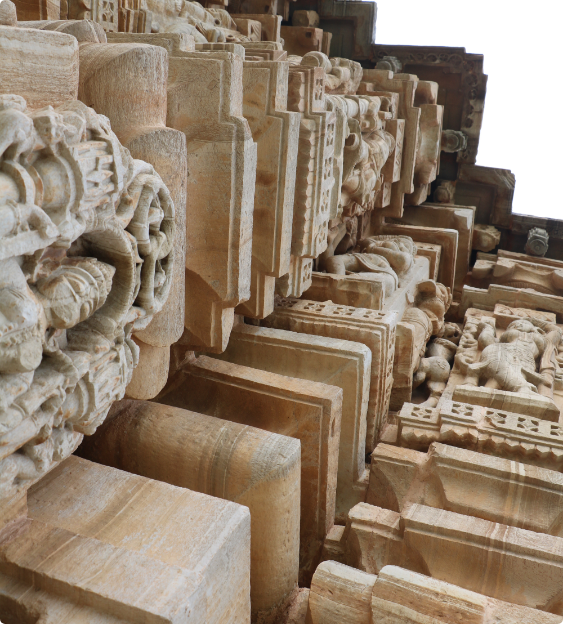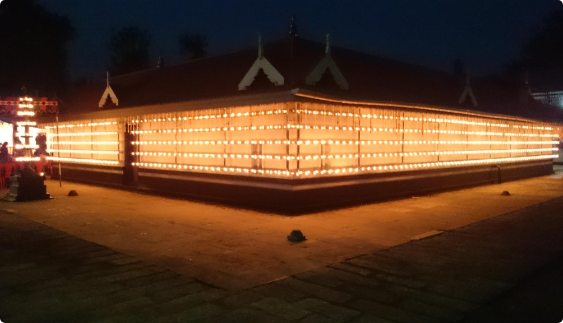
Prior to Indian independence, the geographical area that is now known as the State of Kerala was mainly under the rule of 3 princely states, namely Travancore, Kochi, and Zamorin. All these dynasties were Hindu Dynasties and therefore all three Kingdoms were Hindu Kingdoms. During those times, there were no issues or controversies relating to temple properties as temples were considered as treasures of the Kingdom. All temples were self-sufficient with the revenue that originated from the properties owned by each temple. But things slowly started changing with the invasion of Kerala by foreign powers who belonged to Christian and Muslim religions.
Muslim invaders like Tipu Sultan vandalized several temples and confiscated their properties. During the British rule, the legal and administrative status of temples and their properties underwent a drastic change because of the decisions made by Colonel Munro in ME 1811-1812. As a result, Government took over the management of Hindu temples along with their properties. A separate government department, “Devaswom Department”, was created for administering the temple properties. About 348 major and 1123 minor Devaswoms were thus taken over by the Government. But, by and large, the properties which were owned by the temples remained with the temples till democracy was established in the nation.
In May 1949 a Covenant was entered into between the rulers of Travancore and Kochi, and the representative of the Central Government by which the administration and management of temples and their properties were handed over to the democratically elected Government on the condition that the administration of the temples will be handed over to a properly constituted “Devaswom Board” and accordingly the Devaswom Boards in Kerala were constituted by the enactment of statutes. Since then, temples in Kerala are being managed by Devaswom Boards constituted by the Government with representatives elected by the elected members of the assembly who belong to Hindu religion. Because of this methodology of constitution of Devaswom Boards, effectively the Devaswom Boards are under the control of the Government in spite of the fact that the Devaswom Boards are supposed to be an independent body. But, as far as the scenario in Kerala is concerned, the majority of temples in Kerala are not under the control and administration of the Government-constituted Devaswom Boards, but are managed by the private Devaswoms and Trusts. But irrespective of the nature of temples, a huge extent of their properties were encroached upon and according to a reasonable estimate more than 2/3rd of Hindu temple properties were affected and the temples were divested of their possessions. As far as the properties of the temples under Malabar Devaswom is concerned, the Devaswom itself has admitted that about 10,000 hectares of temple land have been encroached upon. In case of other Devaswom Boards like Travancore, Kochi and Koodalmanikyam, in spite of repeated directives of the Kerala High Court, till date they have not provided the details of the extent and scope of illegal possession of temple properties.
Large swathes of properties of Thrissur Vadakkumnatha Temple and Koodalmanikyam temple have been taken over illegally. There are several instances of complete destruction of temples after illegal occupation. The situation that exists in Kerala is that the encroachment of the temple properties are being legalised by the intervention of the Government through its revenue department by issuing Pattayams (Purchase Certificates) and other legal possession/ownership certificates to the encroachers.
Till date, no concerted effort has been taken by any one in the State of Kerala to evict the encroachers and restore the temple properties to the deities, the rightful owners. It was in such circumstances, a decision was taken to venture into this field of illegality, and put up a legal defence so as to reclaim the lost properties of temples.

